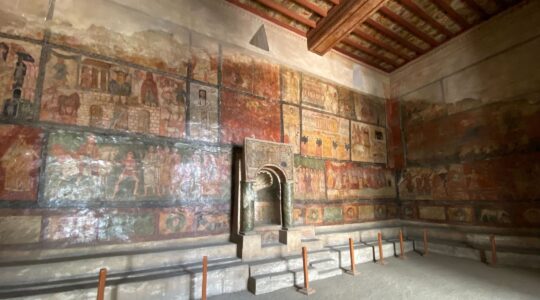Israel’s Labor Party has failed to adapt to the 21st century, argues Gershom Gorenbeg in a piece in The American Prospect.
Polls predict that when Israel holds elections on Feb. 10, Labor may fade to 10 seats in the 120-member Knesset. The real race is between Benjamin Netanyahu’s right-wing Likud and Foreign Minister Tzipi Livni’s centrist Kadima. There are proximate reasons for Labor’s fadeout, including the party’s reflexive return to the manifestly unpopular Ehud Barak as leader. The reflex hints at deeper problems: Barak is a kibbutz-born ex-general with no clear political positions, an embodiment of the old Labor aristocracy…
Labor’s worst political failure came after the military victory of 1967 and the conquest of the West Bank, Gaza, the Golan and the Sinai. The party was unable to agree on policy for the future of the occupied territories. Instead, it fell back on a pre-independence tactic: Incrementally altering borders by establishing settlements. Galili directed the project with the clandestine instincts of an old conspirator. The vast settlement enterprise later built by the Likud stood on a foundation laid by Labor.
The last desperate attempt to turn Labor into a modern social democratic party was led by Amir Peretz, a Moroccan-born trade unionist. Peretz was elected party leader in 2005. But when he joined Ehud Olmert’s government in 2006, he accepted the post of defense minister rather than insisting on control of economic policy. Peretz, it seems, surrendered to critics within Labor who said he needed military credentials. Then he let the generals lead him into the Second Lebanon War. When he quit, Labor reannointed Barak, ex-prime minister and embodiment of the party’s lack of direction. Barak’s management of the current campaign conjures up Napoleon’s retreat from Russia.
JTA has documented Jewish history in real-time for over a century. Keep our journalism strong by joining us in supporting independent, award-winning reporting.





